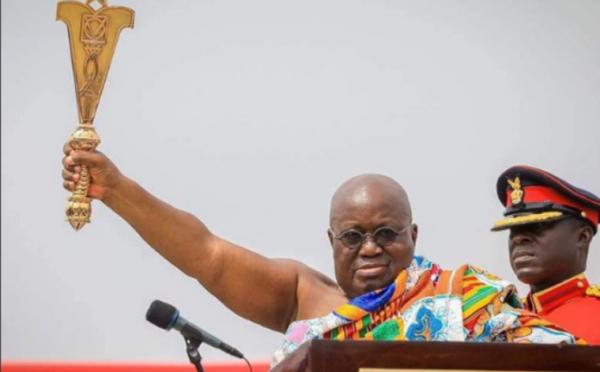The last bond issued by Ghana broke a sad record. The country of President Nana Akufo-Addo issued Thursday, August 22, on the bond market of the country, the equivalent of 162.1 million Cedis ($ 30 million). Bonds were traded with a 20.2% return for a 20-year maturity. In comparison, the States of the Economic and Monetary Union raise money from the WAMU-Titres window at rates of 5 to 6% for maturities that are indeed between 5 and 7 years. In the BRVM bond market, which is less crowded than in the past, bonds issued by the same countries are moving between 6 and 8% for longer maturities. That is to say, all comparisons being equal, the low level of confidence enjoyed by Ghana’s signature in its domestic market compared to the signature of the 8 UEMOA states (including Guinea Bissau) in the regional financial market.
This loss of investor confidence, a real barometer of the public policies of President Nana Akufo-Addo, is clearly appreciated in the result of the loan of 22 August. Thus, the amount raised was far from the objectives of raising 450 million cedis. Even at a yield of 20%, the holders of capital consider the level of remuneration low enough to keep “Ghana Bond” in their portfolios. On arrival, it was therefore 36% (162.1 million cedis vs. 450 million cedis) of the projected amount at the start. Investors’ fears are fueled in part by the ever-increasing exchange rate risk on the CDIC.
According to Bloomberg, Anthony Asare, Finance Manager at GCB Bank Ltd, “the maturity of this bond is too long for the level of investor confidence in the country’s economy.”
After the end of the four-year program of the International Monetary Fund in Ghana last April, the authorities have revised up their budget deficit forecast. Thus, the deficit increases to 4.5% of GDP compared to 4.2% in the mid-term budget review. According to statistics for some of the country’s economic indicators, inflation accelerated to 9.4% in July. The cedi depreciated against major currencies including the dollar. The local currency lost 10% against the greenback. These signals to the red have not left indifferent the Minister of Economy and Finance, Ken Ofori-Atta. The state treasurer warned: “this month, the country was at high risk of over-indebtedness”. As a reminder, since the end of the IMF program, Ghana has decided to no longer seek credits from the Breton Woods institution to finance its budget.



